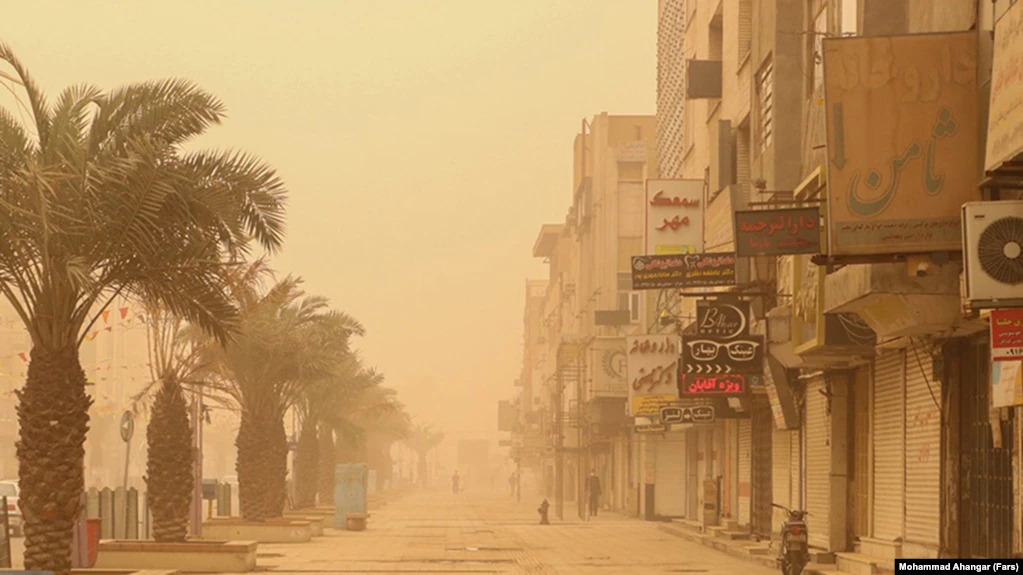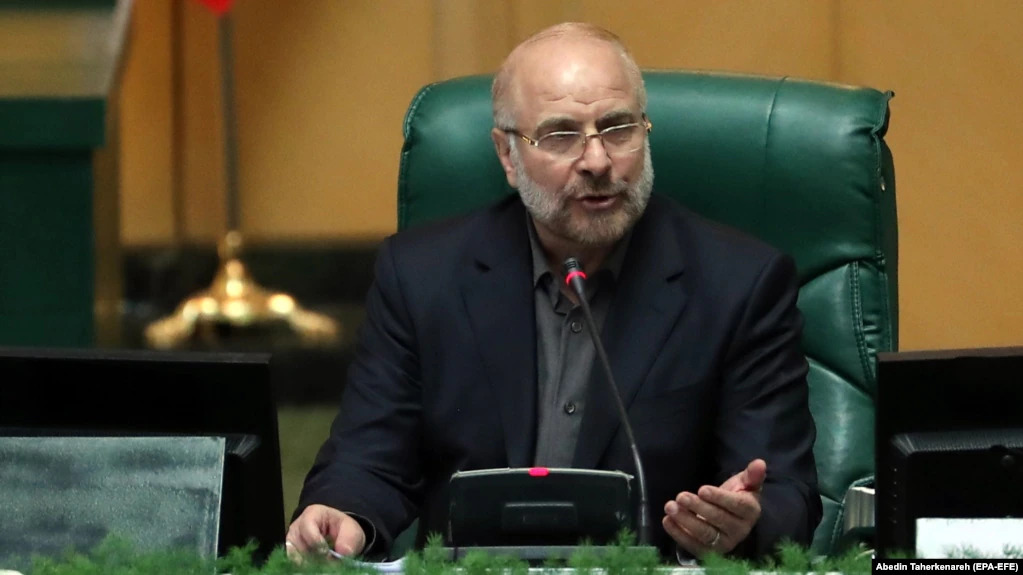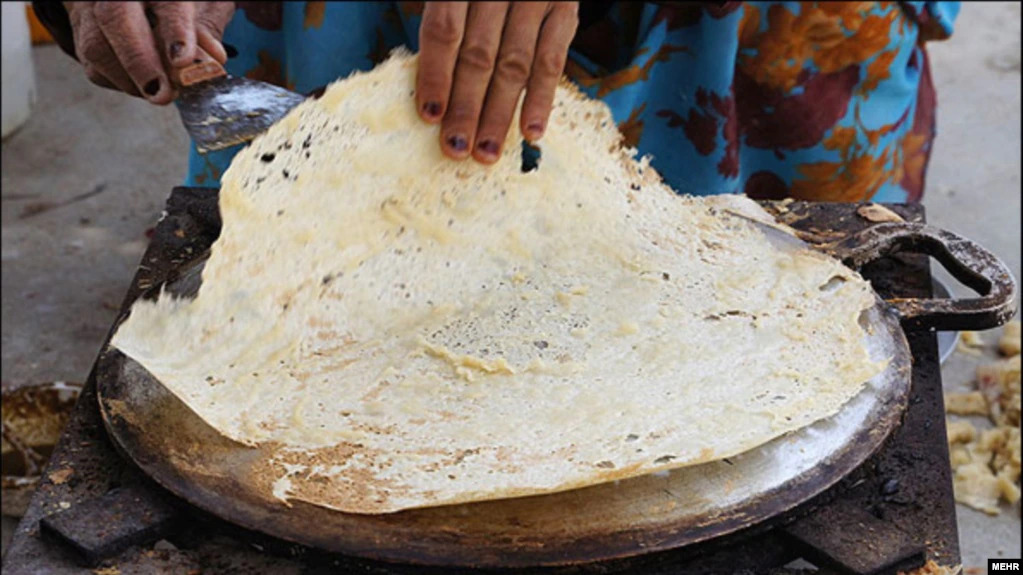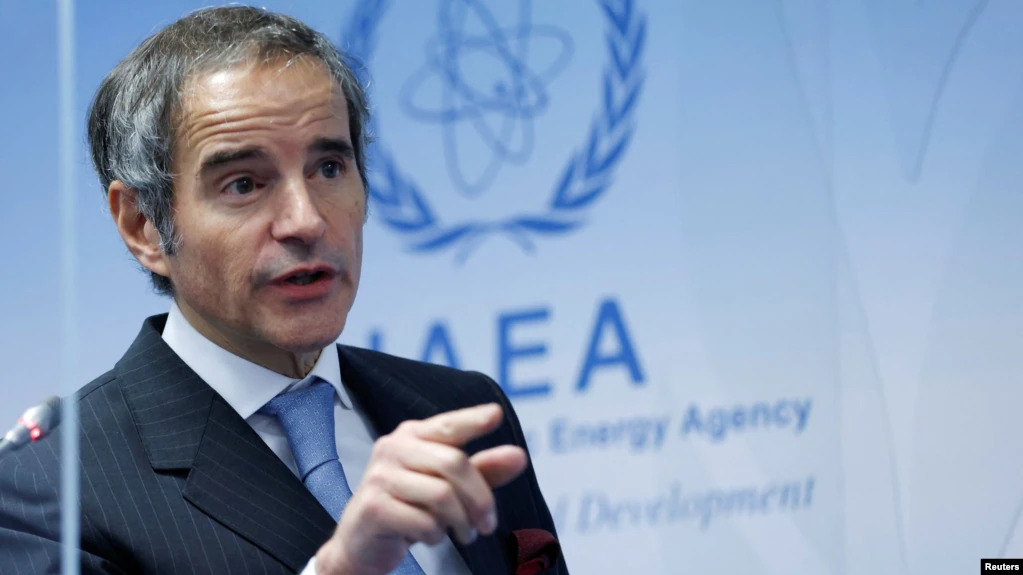
Difference Between Political and Economic Issues
The editorial of Arman Melli, penned by “reformist” academic Sadegh Zibakalam, underlines that the Iranian government cannot resolve rampant economic problems by merely chanting slogans, despite its success in solving political issues by shouting slogans.
It is a fact that political issues, at least in the short run, can be resolved by chanting revolutionary slogans and labeling certain people as “liberals” and “compromisers.” State-run television and other propaganda platforms can also be used for chanting revolutionary slogans.
But the difference between political issues and economic problems is that we cannot deal with economic problems by merely chanting slogans, even in the short run. We cannot mend the economy, no matter how big the slogans are!
We cannot prevent prices from rising by simply chanting slogans, and we cannot balance supply and demand in the market by shouting slogans. When production decreases, prices increase, and no government can prevent the rise in prices of certain products when they become scarce. If a government can stop a river from flowing down a steep slope, then it can stop prices from going up when the mechanism of supply and demand is disrupted.
When production is low and due to economic insecurity, the capital necessary for production in the country goes to other countries like Georgia, Turkey and the UAE for buying property, the economy cannot move forward and improve. Under these circumstances, one cannot expect domestic investors to invest in production.
That people’s tables cannot get bigger by shouting slogans is economically tragic. Indeed, the government must move to resolve economic and livelihood issues in society by making plans, making appropriate economic decisions, and making certain changes. We cannot expect to see economic improvement and prosperity without adopting a proper approach.
For sure, the country’s economy cannot be fixed by simply issuing executive orders. Rather, the government must go to economists and experts asking for their help to find a way out of the current miserable situation.
A Serious Warning!
The editorial of Jomhouri Eslami slams Ebrahim Raisi and his government for their incompetence in resolving people’s economic problems, calling for them to step down.
Even during the Iran-Iraq War the price of bread did not increase. Now 33 years after the war, Ebrahim Raisi’s government, which calls itself revolutionary and popular and “jihadi,” should not even talk of raising the price of flour and bread, particularly at a time when we are witnessing a dramatic rise in prices of different goods which has put an unbearable burden on people.
Bread, meat, cooking oil and pasta are basic necessities for people’s lives. Now, when some of these goods have become scarce and outrageously expensive, officials talk of offering bread with national ID cards and people paying the price difference themselves directly, which is pretty much like setting fire to a powder keg.
We witnessed many ups and downs during the war as many infiltrators sought to destabilize the government through incendiary acts. And now we are witnessing strange decisions made by the government which would have similar destabilizing effects, we must admonish government officials in good faith.
Now if what is happening is not due to the measures of those who have infiltrated the government, then it must be the outcome of weak management, particularly that of the economic minister. President Raisi must answer this important question, saying how much time he needs to realize that he cannot run the country by chanting slogans.
That the government and state-run television together keep saying that the high price of flour and the scarcity of pasta are due to the smuggling of these goods is not acceptable. People do not fall for such tricks any longer. Ebrahim Raisi’s government, eight months after taking office, cannot blame the previous government for the current situation.
If these problems are due to smugglers, why is the government not taking measures to stop them? It they are because of the war in Ukraine, why are the Iranian authorities not explicitly condemning the Russian invasion? The authorities know that US sanctions play an important role in the current situation, so why are they not taking effective measures to bring the nuclear talks to fruition?
If Raisi and his officials cannot resolve the current issues, they must resign and let capable people take charge of affairs.
Radicalization of Street Protests
The editorial of Ebtekar warns against the possible radicalization of protests in Iran when people cannot raise their demands by going to the ballot box and voting for those who really represent them and their demands.
The Iranian people have been taking to the streets to protest over different issues for some time. Each union protest immediately turns into a street protest and then becomes a political issue. Teachers, retirees, workers, etc. follow up on their demands by taking to the streets, and then protesters chant slogans that have a political nature and are anti-establishment.
This is a significant phenomenon pointing to certain other issues. It is not by mere chance that popular protests rapidly become radical. There must be a reason for this.
In the past, the “reformists” represented certain demands of society, so they could follow their demands through voting and the ballot box. But now the “reformists” do not play a role in the government. As a result, those who were represented by the “reformists” will have to take to the streets from now on, searching for a different way to be heard and recognized.
Taking to the streets is dangerous and costly both for the people and the establishment. The establishment must not allow the streets to become the only resort for people, which means the streets will become the first and only option for people to raise their demands.
Under the current circumstances, it seems that people have no choice but to resort to street protests to resolve their issues. The less the people go to the ballot box to vote, the more they will take to the streets, which means that the demands of the middle class will be raised in street protests. This means that political bodies and processes can no longer fulfil social demands.
Most definitely, the solution does not lie in using an iron fist against protesters. Rather, it is to increase the political capacity of the establishment, so much so that their demands can be pursued at the ballot box and through other simpler ways.
Problems Must Be Solved Fundamentally
The editorial of Arman Melli asserts that the Iranian government must take fundamental steps to deal with economic problems, addressing the issues of structural economic problems, US sanctions, and the FATF bills.
There are several factors involved in the dramatic rise in prices in Iran. One of the factors is Iran’s structural economic problems, which have not been created overnight. They existed before Ebrahim Raisi’s government took office and will continue to exist.
The second factor is that US sanctions which are still in place and in so far as they are not resolved in a way that Iran can have normal, stable relations with the world, the country’s economic problems are not going to be easily overcome. What is obvious is that to improve conditions, Iran must be able to have economic and trade interactions as a member of the international community and sell its oil legally and transparently and bring oil revenues to the country’s economy. Although the war in Ukraine has improved the conditions for selling oil, the sanctions against Iran are still putting pressure on Iran’s economy.
The other problem relates to the FATF bills which facilitate monetary transactions with the international community. Because of the failure to ratify the FATF bills, Iran cannot undertake normal monetary transactions with the world, even if US sanctions are lifted.
The other issue is that of government management. In so far as the issues of structural problems, sanction and the FATF are not overcome, we cannot easily talk of improving economic conditions in Iran. Management requires resources and when there are no resources, it makes no sense to talk of management.
Ultimately, it can be said that without resolving these issues, it makes no sense to expect miracles in Iran’s economy. Although Raisi’s government suffers from managerial problems, it seems impossible to resolve the managerial problems without first resolving the more fundamental issues mentioned above. In so far as these issues are not fundamentally dealt with, we cannot expect growth, progress, and the resolution of social issues.

Protests in Khuzestan Over Rise in Prices; Increase in Arrests and Internet Shutdown

People in different cities of Khuzestan Province took to the streets in protest against the dramatic rise in prices. Meanwhile, there has been an internet shutdown in different cities of this province, and several Khuzestani citizens have been arrested.
Mobile internet is still cut off in the city of Ahvaz and some other cities of Khuzestan, and even access to domestic internet has become impossible.
The Center for Human Rights in Iran (CHRI), through its Twitter account, has reported the identities of some of detainees in Khuzestan, including Saeed Daihimi, Atiyeh Moghinami, Hossein Moghinami, and Ahmad Sayahi.
According to reports, protesters in Khuzestan were arrested after a popular call for holding assemblies and protests over the increase in the price of bread on Thursday, May 5.
In recent days, many videos have been released on social media showing popular protests and the heavy presence of security forces and special units in different cities of Khuzestan and their violent measures to suppress the popular protests.
Along with protests in Khuzestan, a number of social media users said that mobile internet has been either cut off or slowed down in different cities of this province, including Susangerd, Andimeshk, Izeh, Hamidiyeh, Shadegan, Mahshahr, Behbahan, Hendijan, and Dezful.
Reza Pahlavi, in a tweet, reacted to the situation in Khuzestan, “Khuzestan doesn’t have water, doesn’t have bread, doesn’t have air, doesn’t have internet, but the Iranian nation will stand by it.” Pahlavi continued, “Together we will defeat the oppressors and free our Iran.”
The protests in Khuzestan were preceded by public demonstrations over water shortages across different cities of this province last summer. These widespread assemblies were brutally suppressed by security forces.
During those protests, the internet was cut off for several days aiming to prevent the release of videos of the atrocities inflicted by security and law enforcement forces.
Amnesty International later reported that during those protests, security forces had shot people with shotguns and used tear gas, killing at least eight people in these protests.
Parliament Speaker Ghalibaf: People Are Very Upset Over High Prices

In an unprecedented criticism directed at Ebrahim Raisi’s government, Parliament Speaker Mohammad Bagher Ghalibaf said that the recent rise in prices and the issue of increasing the price of bread and pasta have made people very upset.
Along with the sharp rise in prices of basic goods and food products, the increase in the price of bread and talks of rationing it have raised the concerns of the Iranian people, sparking widespread condemnation of the Raisi’s government.
With the increase in the prices of bread and pasta, even “hardline ultra-conservatives” and those who backed Raisi and his government on social media have turned to criticizing him and his government.
Regarding the dramatic rise in prices, Ghalibaf said that what has made people more concerned is the recent rise in the prices of basic goods on which people’s livelihoods depend. Public concern is rooted in the fact that if the government eliminates the subsidy on forex allocated for importing basic goods, the prices of other related goods will skyrocket.
Ghalibaf’s remarks regarding people’s concerns about high prices were made while in recent weeks, images of his wife, daughter and son-in-law at Tehran International Airport returning from Turkey have caused him a lot of problems. They reportedly had 20 pieces of luggage including an elaborate layette for Ghalibaf’s grandchild who is not born yet.
There are also unconfirmed reports on social media regarding Ghalibaf’s son-in-law purchasing two apartments in Istanbul, which has become very controversial.
Exposing the trip of Ghalibaf’s family to Turkey has once again raised the issue of former cases of financial corruption tied to Ghalibaf.
In the meantime, Massih Mohajeri, editor-in-chief of Jomhouri Eslami daily, stressed that that even during the Iran-Iraq War, there was no rise in the price of bread and has called for the resignation of Ebrahim Raisi, urging that now that it has become clear that he cannot solve the country’s problems, he must step down from his position.
Student Basij Organization Seriously Warns Government About Rise in Prices

The Iranian Student Basij Organization issued a statement addressed to Iranian President Ebrahim Raisi, seriously warning him about possible social unrest in Iran over the rise in prices. The statement cautions that given the strong network of this organization all over the country, the Iranian president must know that society cannot bear such a sharp increase in prices.
In recent days, the dramatic rise in prices of basic items such as flour, bread, pasta and pastry has created serious concerns among experts and even some lawmakers, sparking protests in many cities.
The statement continues to warn the Iranian president that “disarray in the markets in recent weeks and particularly the shocking decision of the Agricultural Ministry to increase the price of flour may have social consequences and trigger unrest.”
In another part of the statement, Raisi’s government has been asked to avoid making major decisions without public consensus.
According to official statistics, the inflation rate is about 40 percent, but this number is higher for food products. The released statistics in the domestic media indicate that the price of rice has increased by 130 percent and beans by 120 percent, while other food items too have increased well beyond the official statistics.
The Student Basij’s statement underscores that not making the information about subsidies properly available to people has disrupted the market of goods related to flour, oil, and sugar and suddenly these products have become scarce which is “a very alarming signal” for the government.
The decision made by the previous government in November 2019 to suddenly increase the gasoline price triggered nationwide protests which faced a brutal crackdown by security and law enforcement forces.
Dollar Price Soars; Uncertain Future of Nuclear Talks

The price of the US dollar has soared in Iranian markets, going above 28,500 tomans per dollar. Lack of progress in the talks for restoring the nuclear deal has been cited as the main cause of the increase in the price of the dollar and the decrease in the value of Iran’s national currency.
Iran’s Foreign Ministry spokesperson said regarding the nuclear talks that the EU envoy Enrique Mora’s trip to Tehran was just to convey messages, urging that nothing is going to happen.
In the meantime, Director General of the International Atomic Energy Agency (IAEA) Rafael Grossi expressed concern about Iran’s “lack of transparency” regarding its nuclear activities, saying he still has hopes for an agreement between Iran and global powers over reviving the nuclear deal.
Grossi added that the nuclear talks have faced challenges and this opportunity might be lost.
His remarks were made on the day when the EU envoy was reportedly going to Tehran to convince the Iranian authorities to revive the nuclear deal.
Grossi stated that he had warned the Iranian government about not being sufficiently transparent about its nuclear activities.
Grossi stated that in the meeting with the Iranian foreign minister in Tehran, he warned him that this “lack of transparency” is so serious that it can have a negative impact on implementing the nuclear deal and reviving it.
The IAEA director general stated that in recent months, they have been able to identify traces of enriched uranium in places which have never been announced by Iran.
The severe pressure on Iran’s economy as a result of US sanctions has led to widespread discontent among different groups of people, prompting the Iranian government to resume the talks for reviving the nuclear deal more than a year ago.
Until March, reaching a nuclear agreement seemed quite close. But since then the nuclear talks have been stalled because of the Iranian government’s insistence on delisting the IRGC from the US list of terrorist organizations.
